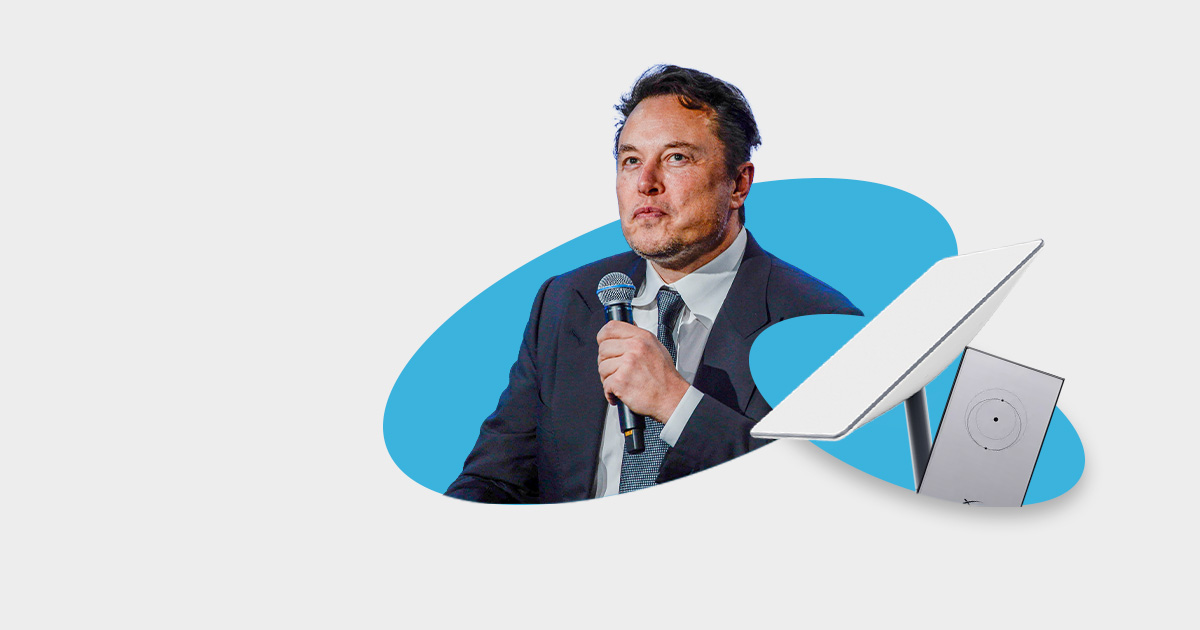Who pays for Starlink, and what will happen to mobile communication on the battlefield in Ukraine?

International politics has always involved business people. At the beginning of the twentieth century, American entrepreneur Samuel Zemurray managed to establish a loyal government in Honduras. He created a private military company, armed it with American machine guns and sent it to Honduras to support the revolutionary units of General Bonilla. The mercenaries, together with the rebels, seized power. Bonilla thanked them by giving the businessman 10 thousand hectares of banana land.
The US State Department knew about Zemurray's plans. The entrepreneur acted at his discretion, but American diplomats supported him. When the rebels won several victories on the battlefield, the United States organised negotiations between the parties to the conflict. After the establishment of Bonilla's power in Honduras, American sailors helped patrol the cities.
Entrepreneurs can be actors in international relations, receiving support from their government. Yet, despite the increasing influence of transnational corporations or other non-governmental actors on global politics, states still have the last word. The situation with Elon Musk illustrates the same.
Why does Musk support Ukraine?
Elon Musk specialises in strategically important technologies: artificial intelligence-controlled cars, space rockets, solar panels, satellite Internet, superfast trains, and brain implants. Currently, Musk is trying to acquire the social network Twitter. It is also strategically important because it can significantly influence public opinion.
Control over so many advanced sensitive technologies gives Musk considerable power. To not lose it, he supports Ukraine, or the status quo, which allows him to increase his wealth. Despite the turbulence of the 20s of the XXI century, the wealthiest Americans are growing richer. According to the Federal Reserve, their total wealth has increased from 15 to 17 trillion dollars. It is because the world maintains freedom of movement of goods and investments. However, if Russia wins, this world order may come to an end. Countries will become increasingly isolated, so business people will fail to make super profits.
Price of help
For this reason, SpaceX provided 15-20 thousand terminals of the Starlink satellite Internet system free of charge and activated the network in Ukraine. It allows Ukrainian military and civil servants to stay connected in areas with no mobile signal.
However, not all terminals operating in Ukraine have been donated. Since the beginning of the full-scale invasion, Ukrainian volunteers have been buying terminals in European countries and paying the subscription fee themselves.
For example, volunteer Dmytro Zhlutenko has purchased more than 50 terminals for the network. He has already paid SpaceX more than 40 thousand USD, the volunteer told Svidomi. Thirty thousand was spent on purchasing terminals, and the rest was on subscription fees. Volunteering began with Zhlutenko buying terminals for his friends in the army with no live-streaming internet. The guy later created a charity fund, "Dzyga's Paw" (named after his dog), to be more effective.
Instead, Musk claims that he pays the subscription fee for most terminals from his pocket. It costs $20 million per month. At the same time, SpaceX does not disclose how many terminals operate in Ukraine, so it is impossible to verify.
What caused such a reaction from Musk?
The SpaceX owner believes that the probability of a nuclear war between NATO and Russia is growing. However, he wants to avoid it because such a war will have worse consequences for the world order than Russia's partial victory in the war against Ukraine. In addition, the world war will likely lead to the nationalisation of Musk's strategically essential enterprises. That is, his companies will come under state control despite the will of the businessman. Thus, during the First World War, the United States nationalised railway, telegraph and telephone networks, and enterprises for the production of aircraft, ships, cables and explosives during the Second World War.
In addition, Musk reads Russian propaganda media. This became known during the court case regarding the refusal of the entrepreneur to buy Twitter despite the signed agreement. During its consideration, the court published private correspondence of the entrepreneur with people involved in the deal. In a conversation with investment banker Antonio Gracias, Musk wrote that the propaganda resource Russia Today publishes "a lot of bullshit, but some good points too". Russia Today is a Kremlin-controlled media network that has been spreading disinformation for ten years. For example, RT claimed that office workers were implanted with chips under their skin in European countries to control them. Since 2014, RT has been creating the label of fascist Ukraine.
What comes next?
It is known that back in September, SpaceX addressed the Pentagon with a letter about the impossibility of further supporting Ukraine for free. Instead, Musk wanted the United States to pay for Starlink's work in Ukraine. Publicly, the Department of Defense declined to comment on the decision, saying that negotiations were ongoing. However, Deputy Secretary of Defense Lloyd Austin Sabrina Singh hinted that the department is already in talks with other operators. Subsequently, Musk again promised to help in the future. At the same time, other countries pay for the operation of eleven thousand terminals.
Will Musk change his mind in the future? Dmytro Zhlutenko highly doubts it. So instead, the volunteer plans to purchase another 100 Starlink terminals, allowing him to create a stock and quickly issue communication equipment to those militaries who urgently need it.


